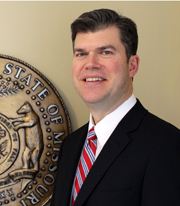
Can You Amend a Will or a Trust?
It’s the rare person who puts their estate plan together once and never needs to change some part of it. What is important is to understand how to make changes effectively and legally to a will or a trust so these changes are enforceable and your wishes are followed. A recent article from Coeur d’Alene/Post Falls Press, “Amendments to your estate planning documents require certain steps,” explains how an estate planning attorney ensures that your requested changes are made properly.
All too often, people come to their estate planning attorney’s office with handwritten edits and changes to the original language, thinking their notes and a signature or their initials will make the changes legitimate. This is never a good idea.
People also arrive at their attorney’s offices with handwritten addendums written on the front or back of a will or trust document, attached by a staple or paper clip after the original document has been signed. This doesn’t work either.
These approaches create problems because they don’t meet state requirements for a legally valid amendment to a will or trust.
There are two ways to make legally enforceable changes to a will. One is replacing the prior document with an entirely new will document. This new will must explicitly state in the document that all prior wills are revoked and replaced.
The second is to add a document known as a codicil to the old will to clarify exactly which part of the old document is being changed. It typically reaffirms the unchanged other terms of the old will document.
Legally enforceable changes to trusts are similarly done in one of two ways. The first is to replace the prior trust document with an entirely new trust document, although the name and creation date of the trust must remain the same and must state explicitly this is not a revocation of the trust. This is referred to as a trust restatement.
The second way to change a trust is using a trust amendment, which is similar to a codicil of a will. A trust amendment is a new document added to the existing trust document. It states which parts of the original trust document are being changed.
It’s important to speak with a local estate planning attorney about making changes to wills or trusts because each state has its own technical requirements for a will codicil or trust amendment/restatement, which must be followed so the changes will be legally effective.
Just writing on the existing pages of a will or trust never meets the requirements but certainly ensures that there will be major post-death disputes among family members and interested parties. An estate planning attorney can help with any modifications, whether they are large or small, to your will or trust.
Reference: Coeur d’Alene/Post Falls Press (Oct. 25, 2023) “Amendments to your estate planning documents require certain steps”








